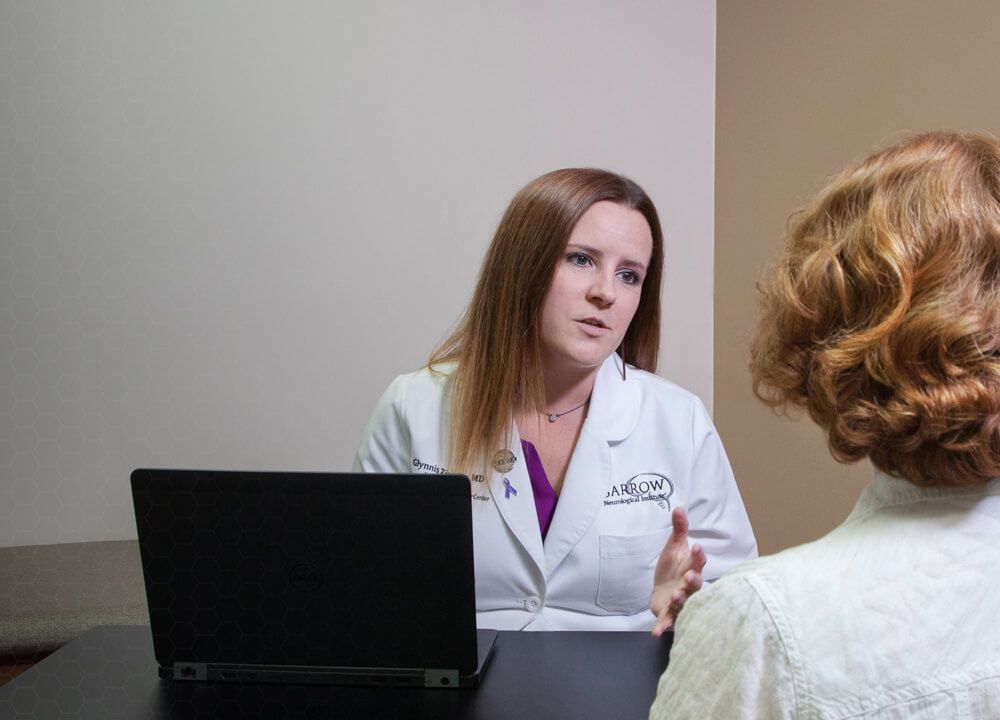
Barrow Creates the Nation’s First Program to Treat, Study Domestic Violence Survivors with Brain Injuries
The Barrow program, which provides medical care for homeless victims who have sustained a traumatic brain injury as a result of domestic violence, was created after a Barrow doctor and social worker identified a 3-way link between homelessness, domestic violence and TBI. The medical team has found that many of these victims are suffering from a full spectrum of side effects that can lead to the loss of a job, income, and eventually homelessness. A recent Barrow study published in the Journal of Neurotrauma found that 81 percent of these patients have suffered too many head injuries to count due to domestic violence and only 21 percent had ever been able to seek care for their injuries at the time they occurred.
Glynnis Zieman, MD, a neurologist in Barrow’s Concussion and Brain Injury Center, oversees the program which is believed to be the first of its kind in the nation and has treated more than 300 patients since its inception in 2012. Dr. Zieman believes that like professional athletes, victims of domestic violence are also at a high risk for sustaining concussions and other traumatic brain injuries.
“This is the third chapter in the concussion story,” says Dr. Zieman. “First it was veterans, then it evolved into professional athletes, and now we’re identifying brain injuries in victims of domestic violence. And, unlike well-paid football players, these patients rarely have the support, money, and other resources needed to get help.”
The Barrow medical team works closely with various homeless shelters in Phoenix to identify victims of domestic violence who may be suffering from a TBI. Once screened positively for a possible brain injury, the patients undergo a full spectrum of medical care at Barrow which includes diagnostic services, physical therapy, neuropsychology, social work, speech therapy, and injury prevention education. The goal is to help these patients return to living a productive and healthy life. The program is funded through a variety of generous grants that have been given to the Barrow Neurological Foundation.
